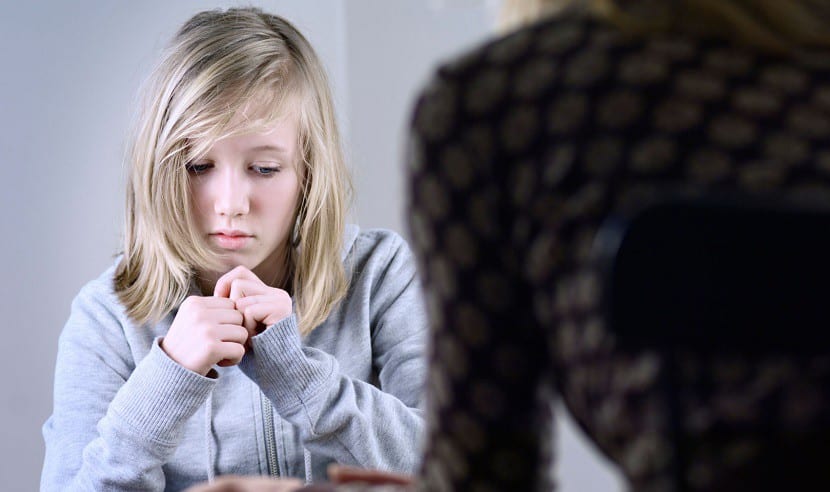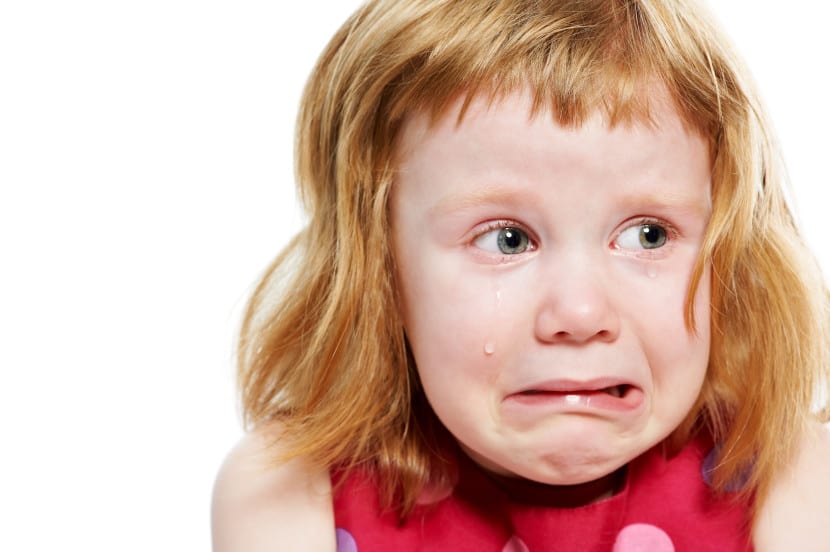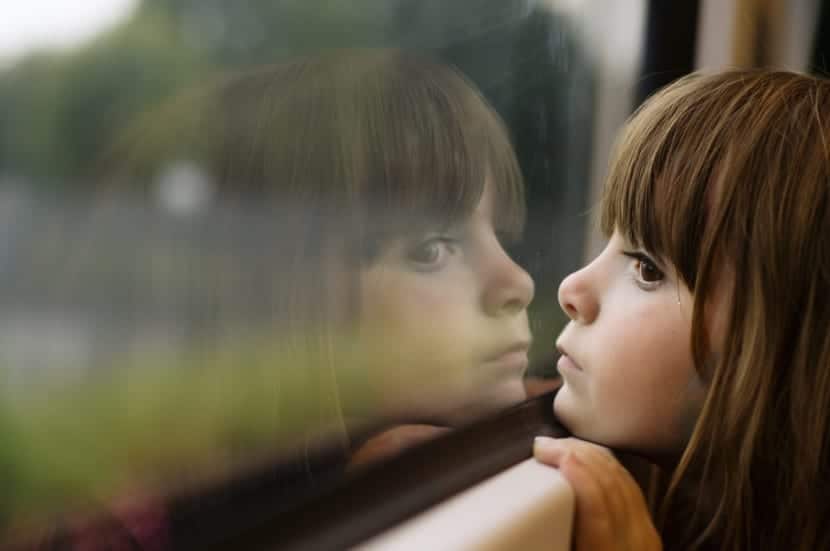
It is normal for children to feel anxious from time to time, but how can you tell if your child's worries are really a cause for concern to you? All children have their fears. Your child may be afraid of strangers, of dogs, he may feel a stomach ache before going to school ... However, some children worry much more than others.
It is very painful for a father or mother to see how their child suffers from anxiety or is always worried, strangling their emotions due to impotence. It is especially difficult if you are also not sure whether or not you should worry, and if you would need to ask for help.
The difference between normal worry and an anxiety disorder is severity and magnitude. Although the feeling of anxiety is a natural reaction to a stressful or dangerous situation, a child may need help if his anxiety is disproportionate, if it persists, or if it interferes with his life or healthy development.
Next, we are going to explain some children's concerns that you should worry about and if it goes to more, do not hesitate to ask a professional for help.
Signs of anxiety
A young child who is overwhelmed by worries may inadvertently not express them in words but may inadvertently express them in behavior. If your child is anxious, this anxiety may start with something in particular. It can be when you are in the presence of another person, because you have separation anxiety, etc. If your child gets sick often or has somatizations, you probably need to be concerned.
Children who have severe anxiety will also try to avoid what triggers it at all costs. For example, if your child refuses to participate in activities that other children enjoy, if he has a tantrum before the dentist's appointment or with the doctor's appointment, if he falls ill on Sunday nights thinking that the next day there is school ... You need to start worrying why those situations make you put up with that tension and anxiety.

Separation anxiety disorder
If the prospect of being separated from parents or caregivers causes extreme distress for the child, the child may have separation anxiety disorder. Separation difficulty is normal in early childhood, it becomes a disorder if fear and anxiety interfere with age-appropriate behavior.
A child with separation anxiety could be very difficult for the child as they will not tolerate being separated from their parents anywhere, not even to sleep. Children think that if they separate from their parents something horrible will happen to them. An older child with separation anxiety will not want to be separated from their parents at any time, and if they are, they may have somatic problems.
Generalized anxiety disorder (GAD)
If a child seems to worry too much about everything, in a generalized way, about everyday and ordinary things, he could have a generalized anxiety disorder. This type of anxiety usually affects performance in school or in sports, In addition, it can even generate more anxiety, especially if they have to take tests.
Children with generalized anxiety disorder (GAD) worry intensely about their inability to meet expectations. Their fears are their comfort and this can be very rigid and irritable for both themselves and others. This anxiety can cause somatic problems such as headaches, tummy aches, or even fatigue.

Have phobias
Your child may have specific phobias. Perhaps your child feels excessively fearful of a particular object or situation. Maybe it's because he has a specific phobia. A paralyzing fear manifests itself when the person is confronted with what gives him extreme fear. They can be clowns, dogs, loud noises, water, insects, the dark, etc. It is necessary to know why it happens because a child with a specific phobia may have a limited life because of it.
Children with phobias may cry or have temper tantrums to avoid the object or situation that distress them, or experience physical symptoms such as shaking, dizziness, sweating, and even vomiting.
Social anxiety disorder
Most children can be shy at some point, but when a child (or adolescent) is overly concerned about doing something embarrassing, being judged negatively by others… they may have social anxiety disorder. Fear of doing something that hurts can make a child want to avoid going to school or anywhere social situations are held.
Some children with social anxiety may be fearful when speaking in class, they may never want to talk to other people - such as asking the cashier to pay or asking for the bill. Other children can also present anxiety in social situations, even when they are not being the center of attention ... even eating in public, using public toilets or going to places where there are more people - strangers - can make them feel anxious.
Presents selective mutism
If a child is talkative in the privacy of the home but is unable to speak at school or in other social situations, he may have selective mutism. Parents and teachers sometimes interpret this silence as something intentional, but in reality it is that the child is paralyzed.
Selective mutism can generate severe distress to the child because he does not communicate but he does want to. Imagine you want to go to the bathroom at school but don't say it… These kids freeze when asked to speak. They can use gestures, facial expressions ... but they don't want to talk. At home, they can even shut up if there is another person who is not from the family.

Obsessive Compulsive Disorder (OCD)
If your child has intense fears or feels compelled to perform repetitive rituals to make the anxiety or fear go away, he may have obsessive compulsive disorder. Children with OCD are preoccupied with unwanted thoughts and fears - obsessions - that are deactivated or neutralized by repetitive actions or compulsions.
The common obsessions of a child can be the fear of contamination, that something bad will happen to them or to a family member if they do not perform their rituals ... They can wash their hands, have repetitive movements, open and close doors, touch parts of their body in a symmetrical way to neutralize fear and be more calm. They may even occasionally ask others to participate in their rituals.